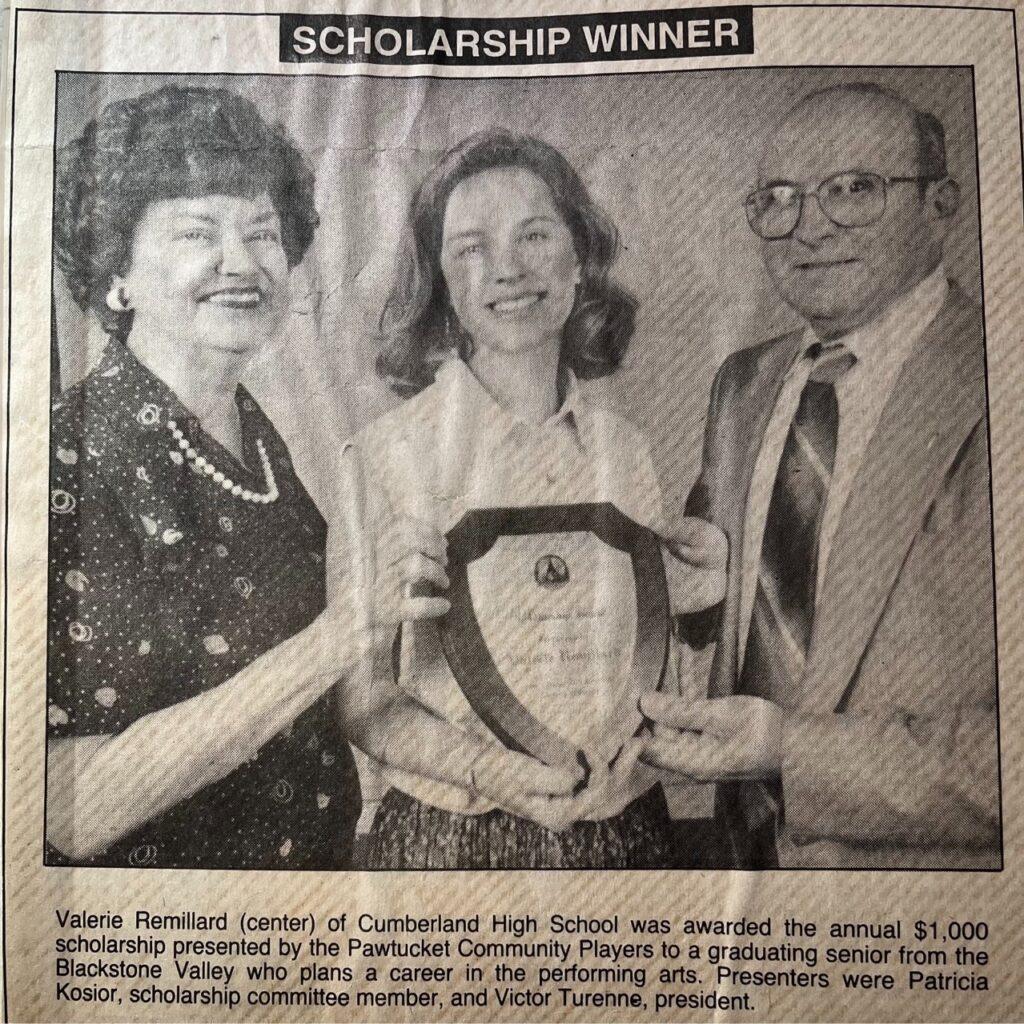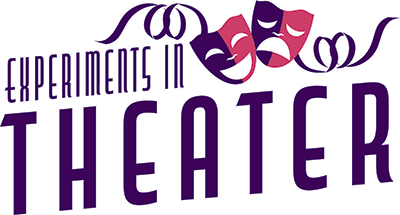When it came time for me to start applying to colleges, my parents and I made this deal. Since my dad was an accountant and therefore the most adept person in the family with money, he would complete all the financial aid papers on my behalf if I agreed to pound the pavement for scholarships. It seemed like a fair arrangement so I got to work immediately. This was pre-internet days, so to complete my end of the agreement, I spent a lot of time in the guidance office in my junior and senior years of high school flipping through a binder that would bulk up each time the school received new notices about scholarship opportunities.
I don’t have a record of how many scholarships I applied to, but I remember that most were theater-related. I even took part in a few scholarship pageants that allowed me to enhance my performing radius AND compete for college subsidies. I won a lot of them. I won all of the performing arts scholarships that I applied to, placed high enough in the pageants to have earned at least a small stipend, and then received a scholarship in my sophomore year of college that I hadn’t applied to but qualified for because of my grades and my participation in the performing arts program.
One of the most meaningful scholarships that I received as a high school senior was the Community Players Scholarship for the Performing Arts, now called the Larry Reedy Scholarship. The scholarship was established in 1982 by the then board president Larry Reedy and, since then, has been awarded annually to a high school senior who lives in or goes to school in the Blackstone Valley and demonstrates a commitment to studying the performing arts in college. In 1994, the recipient received $1000 and a plaque with their name on it. That plaque, pictured here, was the first I had ever received and I still display it proudly wherever I work.

I was in 8th grade when I performed on stage for the first time. Beginning with that moment, I knew I wanted to spend my life working in the theatre. At first, I was only interested in acting and singing. Then I discovered directing, then teaching. I’ve even written a few short plays that I’ve used in theatre camps. I revel in every discovery and new skill I acquire through my arts education and training and I’m still determined to become a better theatermaker.
On the other hand, I was having a lot of conversations with people in late high school and early college that went a little something like this:
THEM – What is your intended major?
ME – Theatre.
THEM – As a minor?
ME – No, I want to major in theater, move to New York, and then work in theatre…professionally.
THEM – Why? You’ll starve. – or – You’ll be unemployed. – or – You’ll never have a family. – or – You’ll quit before you start. – or – Sweetie, you’re a smart girl, it’s a waste of your brain.
ME – Ummmm. Thanks?
I don’t know exactly how many times these conversations recapitulated in reality or my memory — probably way, way too many. I don’t know if it was pure passion or pure stubbornness that led me to finally sign the papers declaring my Theatre Major, but even after I completed the paperwork, the perhaps well-meaning, albeit condescending, warning conversations didn’t go away entirely. It just morphed into something like:
THEM – You can always change to a minor in theatre.
ME – But I don’t want to.
THEM – You don’t need to major in theatre to be an actor/director/theatre person – you just have to know people in the business.
ME – Where are you getting this information?
Despite all that nonsense, I stuck to my plan. It wasn’t easy, but here’s what helped – I thought about the scholarships I received. I saw that plaque from the Community Players hanging on my wall (it returned to school with me every year). That plaque reminded me that someone believed I could have the life I wanted – a life in the theatre. Someone had faith in me. And I knew this not just because they told me so with their words, but because they SHOWED me with their tangible support. I was already earning money in the arts! What was everyone so worried about? I could do this. I already had the evidence to show for it and I hadn’t even started.
With less than two years before I have to fill out the financial aid papers for my kids, I still feel strongly that dividing up the responsibility of financial aid papers and scholarship opportunities is a fair distribution of labor. But life has taught me that there is more to this trade-off than equity of duties. I want my children to experience that same sense of support and assurance that I felt wherever I started to doubt my path. I want them to be able to turn to the plaque on the wall or the trophy or the letter or whatever documentation they have and remember that someone, not just their parents, invested in their dreams. Everyone who earnestly works hard deserves that.
I am so grateful that The Community Players, Rhode Island’s oldest community theatre company, still offers their scholarship to young thespians. Applications are now open. Visit their website HERE for more details. And when considering your charitable contributions this year, consider supporting a scholarship fund.
